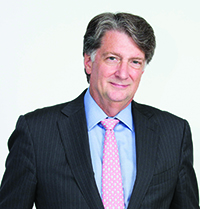Special Reports
MA Top 30 Professional of the Year: David Snead

President and CEO
Handel and Haydn Society
David Snead faced a huge challenge as chief executive of Boston’s Handel and Haydn Society in the summer of 2020. Because of COVID, Massachusetts officials had prohibited choral singing in the state, and Symphony Hall, the home venue of H+H, was not going to allow concerts with audiences for the foreseeable future. “With the banning of singing—many of our concerts are with chorus—and the lack of any place to perform, it became clear that the upcoming season was going to be very different,” said Snead, who came to H+H in 2015, having previously been VP of marketing for the New York Philharmonic.
Founded in 1815, H+H is the longest-running performing arts organization in the United States, and that legacy was a powerful motivation to find a path through the pandemic. “The society has performed Messiah every year since 1854, and we didn’t want to stop that,” said Snead, who initiated a co-production with WGBH public television of Handel’s Messiah for Our Time in December 2020. Filmed under painstaking public health protocols, the period performance of the oratorio by masked orchestra, chorus, and soloists intertwined music with imagery of first responders, hospitals, and city streets empty of people. It drew more than 160,000 broadcast and streaming views.
During the shutdown, H+H streamed 16 free concerts that had another 160,000 views and listeners. “With Messiah on WGBH plus the online performances we had a total audience of more than 300,000 for the 2020–21 season,” Snead said. “Typically, our live, paid attendance for a season is a little over 30,000. As it turned out, the pandemic pivot gave us the opportunity to accelerate our brand and reach a broader audience.”
H+H performed its first live, in-person concert in almost 18 months in August, when Marin Alsop conducted Beethoven’s Ninth Symphony at the Hatch Shell. The free outdoor event, which played to a crowd of 10,000, was funded from a federal pandemic relief grant. “The grant was for $480,000, and we decided to use it do a concert for Boston,” Snead said. “We want to be a community resource, and this was a way to make good on that mission.”





 FEATURED JOBS
FEATURED JOBS

 RENT A PHOTO
RENT A PHOTO


